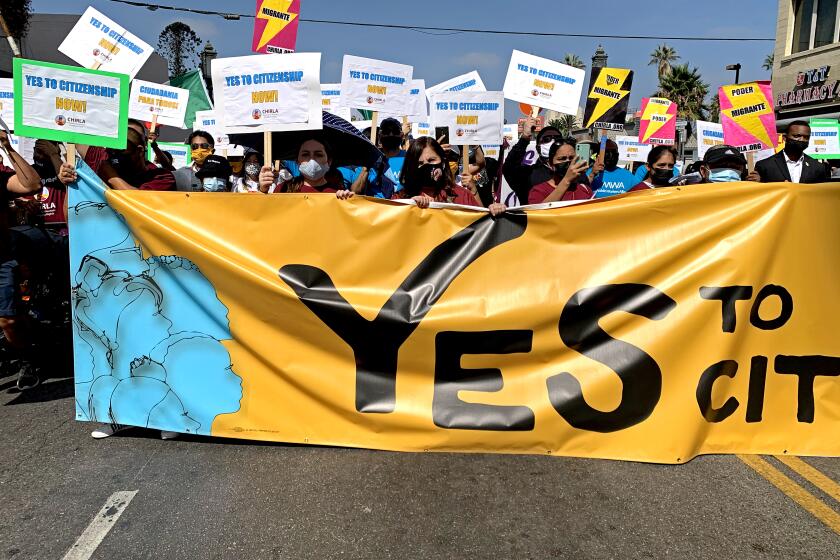Guilt Plagues Parents of Disabled Youth : Coping: Support groups help adults deal with special demands, experts say.
- Share via
Parents of disabled children may experience up to 10 times the stress, demands and guilt involved in parenting of children with no special problems, child experts say.
“When a child is born with a disability, there’s very little celebration of that child’s life,” said Joan Tellefsen, executive director for Team of Advocates for Special Kids, a nonprofit parent information and training center in Anaheim.
“You grieve for the child you did not have, and you grieve for the child you have. Unlike the death of a child or family member, the grieving doesn’t lessen over a period of time, so you anguish over each step along the way,” Tellefsen said.
Parents may feel guilty for having produced a disabled child and then blame themselves or their spouse for their own fatigue and anger.
Relatives of Stacy Phan said she suffered guilt and anxiety as a result of her child’s birth defects, which made her physically and mentally handicapped. They said she loved 4-year-old Dianna and was delighted at any sign of good health in the girl but constantly worried about her daughter’s future.
As the baby became more frail with age, Phan’s depression grew, family members said. The final blow that drove Stacy Phan to kill herself and Dianna on Monday night might have come a month ago, when she and her husband learned Dianna had lost her sight.
How a family copes depends on how they perceive the disability, the severity of the disability, whether they can meet the child’s needs and the ability or desire to find support services, said Paula Fiebert, manager of the Developmental Disability Center in Orange, one of 21 nonprofit agencies mandated to provide services--including respite care for parents of developmentally disabled children.
“If you don’t have a good parent support group, you feel so alone,” Tellefsen said. “Sometimes, family members don’t know how to support you appropriately.”
Most hospitals try to direct new parents of disabled children into support groups, she said.
Tellefsen said that emotions may be more intense in traditional families where the disability is considered a punishment and often ignored. “The Vietnamese or any other culture group that is close and tightknit may choose to depend on their own resources,” she said. Fiebert said her group has five Vietnamese-speaking social workers.
Parents often feel angry, said Sally Kanarek, director of ParentHelp USA, a Huntington Beach center for prevention of child abuse. “They say: “Why doesn’t he get better? Why doesn’t this ever end? What did I do to deserve this?
“They feel the anger, but they’re ashamed of it. The child is so ill, but it’s not the child’s fault, that’s for sure. But it doesn’t change the fatigue the parent is experiencing. It just sets up a conflict. . . . We don’t know what toll it will take on one parent or another. Some are stronger than others.”
She said parents in her support group “are really good for each other. They pat each other on the back and get through another week.”
More to Read
Sign up for Essential California
The most important California stories and recommendations in your inbox every morning.
You may occasionally receive promotional content from the Los Angeles Times.













